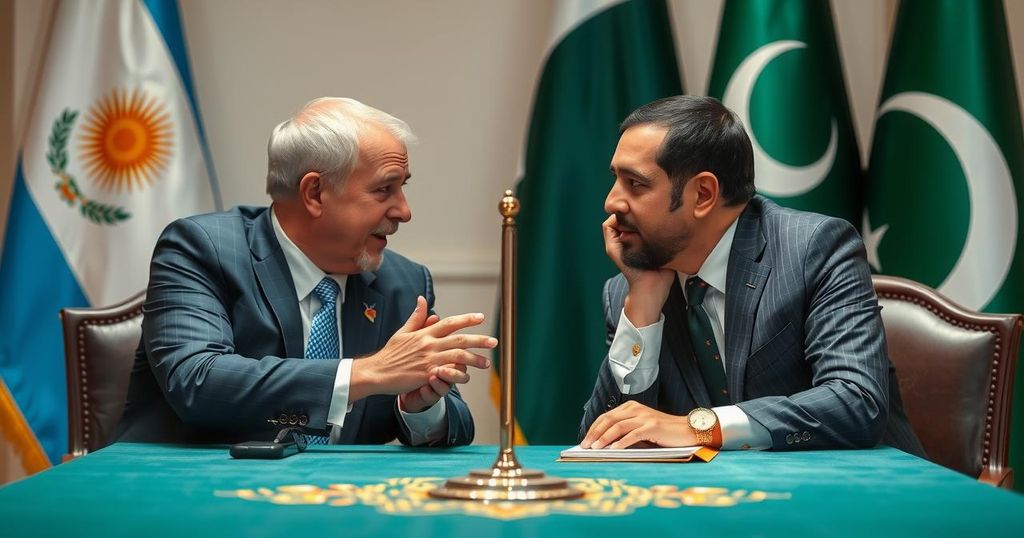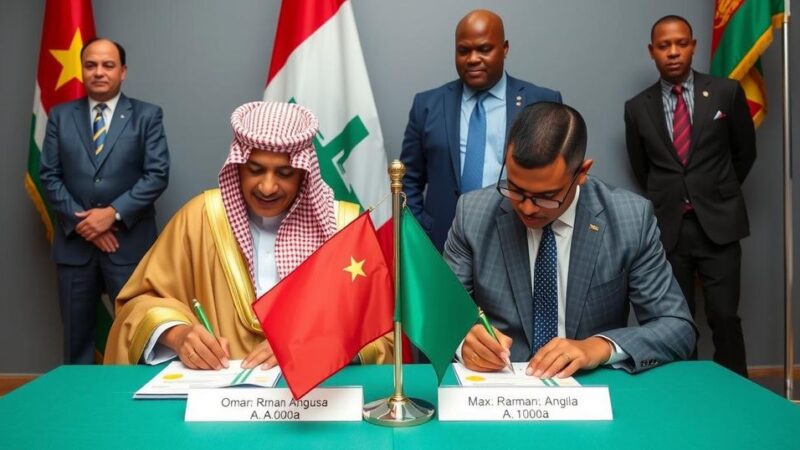The economic situations of Argentina and Pakistan are parallel, particularly in their struggles with instability and IMF intervention. Javier Milei’s presidency has seen dramatic improvements in Argentina’s economy, marked by decreasing inflation and structural reforms. His methods inspire some in Pakistan who seek similar transformative leadership. However, Milei’s biases in socio-political matters and nuanced economic history raise concerns regarding the applicability of his model to Pakistan.
Argentina and Pakistan exhibit notable parallels, particularly in their economic trajectories marked by significant instability. Argentina, once hailed as South America’s economic superstar, has faced a series of financial crises requiring extensive support from the International Monetary Fund (IMF). The ascension of Javier Milei to the presidency in 2023 has sparked a remarkable economic recovery, with inflation plummeting from an alarming 211 percent to single digits within a year. His strategies of reducing government size and deregulation resonate globally, prompting some in Pakistan to seek a similar reformist figure.
Milei delineates his approach in a recent podcast, emphasizing the success of trimming bureaucratic excess and eliminating fiscal deficits as integral to reducing inflation rates. He argues effectively against price controls, advocating for their destructive impact on purchasing power and poverty levels. His insights on the issues of corruption and the manipulation of media underscore systemic challenges that resonate in Pakistan. However, Milei’s views can be polarizing, notably his identification of the US and Israel as “liberal democracies,” which raises concerns among critics regarding his impartiality and understanding of global socio-political dynamics.
Moreover, Milei’s interpretations of economic history reveal inherent biases. For instance, his portrayal of the last two millennia as a continuous road of growth neglects the economic advancements achieved under various empires. His controversial assertions comparing the living standards during the Industrial Revolution unfavorably against those of the Roman emperors align poorly with historical evidence. Additionally, Milei’s allegiance to certain economic doctrines, particularly the Austrian school, reveals a simplistic understanding of complex economic theories.
While Milei’s pragmatic approach to economics merits appreciation, his biases and errant historical assertions warrant caution. Pakistan could undoubtedly benefit from a reformer who fears not the status quo and comprehends the economic challenges at hand. However, it is essential to critically assess the ideologies of such figures to avoid replicating mistakes that hinder progress.
The article posits a comparative analysis of Argentina and Pakistan, illustrating their respective economic difficulties and the political dynamics influencing their systems. It highlights Javier Milei’s presidency in Argentina as a pivotal moment for economic reform and recovery, generating discussions on the potential for a similar economic savior in Pakistan. This context is essential for understanding the broader implications of leadership change on national economies and policy decisions.
In closing, the article examines the complexities surrounding economic reform as showcased by Javier Milei’s presidency in Argentina and its potential implications for Pakistan. While Milei’s governance demonstrates effective fiscal strategies conducive to economic stability, his controversial perspectives and historical inaccuracies necessitate a cautious approach. For Pakistan, the ideal reformist would embody Milei’s tenacity while maintaining a balanced understanding of history and avoiding partisan biases.
Original Source: www.dawn.com







